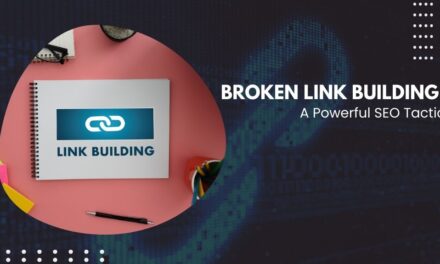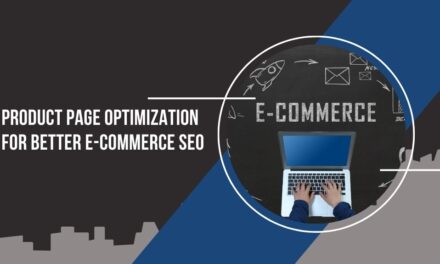In the era of digital marketing, creating a robust online presence is no longer solely about achieving high rankings on SERPs. Search engines such as Google emphasize websites that show E-A-T: Expertise, Authoritativeness, and Trustworthiness. These three foundations are crucial for establishing SEO credibility and fostering online trust. Let’s examine the significance of E-A-T, its importance, and how you can enhance your content strategy to align with these criteria.
Understanding E-A-T: What It Means and Why It Matters
E-A-T stands for Expertise, Authoritativeness, and Trustworthiness, a framework Google uses to evaluate the quality of websites and content. While not a direct ranking factor, E-A-T influences how search engines perceive your site and impacts your overall SEO credibility.
Expertise: Exhibiting expertise involves creating content that reflects comprehensive understanding in your specific field. This is particularly important for YMYL subjects, which include topics such as health, finance, and legal guidance. If your content does not demonstrate expertise, both users and search engines will find it untrustworthy.
Authoritativeness: Authority is earned through recognition in your industry. Backlinks from reputable sources, mentions in trusted media, and positive reviews can enhance your site’s authority.
Trustworthiness: This focuses on the integrity of your website. Secure domains, transparent business practices, and accurate information contribute to trustworthiness.
Google’s E-A-T guidelines aim to ensure users receive high-quality, reliable information. By focusing on E-A-T, you not only improve your rankings but also build long-term online trust with your audience.

Establishing Expertise: Showcasing Your Knowledge
To excel in expertise, your website needs to consistently produce content that demonstrates your knowledge and skill in your field. Here are some ways to achieve this:
Create High-Quality Content: Publish well-researched, detailed articles that address specific questions or concerns your audience has. For example, if your niche is fitness, an in-depth guide on strength training techniques adds value and showcases expertise.
Use Data and References: Support your claims with data, case studies, and citations from credible sources. This not only enhances credibility but also indicates to search engines that your content is reliable.
Hire Qualified Contributors: If you’re not an expert in your niche, collaborate with professionals who are. Guest posts by industry leaders or articles by certified experts enhance the perceived expertise of your site.
Stay Updated: Expertise is an evolving trait. Regularly update your content to reflect the latest trends, news, and developments in your industry. This shows your audience and search engines that you’re actively engaged in your niche.
By consistently demonstrating expertise, you’ll establish yourself as a go-to source for reliable information.
Building Authoritativeness: Earning Industry Recognition
Authoritativeness involves being acknowledged as an authority in your area of expertise. The greater the number of reputable sources that support your content or reference your work, the more credible your site will be. Here’s the way to construct it:
Earn Quality Backlinks: Backlinks from trusted and relevant websites act as endorsements for your content. Focus on creating link-worthy content, such as research papers, infographics, or how-to guides that others in your industry will want to reference.
Leverage Social Proof: Reviews, testimonials, and endorsements from satisfied clients or industry peers can significantly boost your authority. Display these prominently on your website.
Engage in Guest Blogging: Create guest articles for esteemed blogs within your field. This not only boosts your visibility but also links your name with credible platforms.
Be Active in Your Community: Participate in industry events, webinars, and forums. Engaging with your community positions you as a thought leader and helps build your personal and professional brand.
Showcase Awards and Accolades: If you’ve received awards or certifications, prominently display them on your website. These badges of honor are tangible proof of your authority.
Building authoritativeness takes time and effort, but the payoff in terms of SEO credibility and audience trust is invaluable.
Enhancing Trustworthiness: Securing User Confidence
Reliability is the core of E-A-T and directly influences your online credibility. A website that looks untrustworthy or dubious will find it hard to keep visitors and achieve a good ranking. Here’s how to increase reliability:
Secure Your Website: Always use HTTPS to encrypt data and ensure secure connections. A secure site protects user information and signals trustworthiness to search engines.
Be Transparent: Include clear contact information, an about page, and privacy policies. These elements show that your business is legitimate and transparent.
Maintain Consistency: Ensure that your name, address, and phone number are consistent across all online platforms, including social media, directories, and your website.
Encourage Positive Reviews: Favorable customer feedback on sites such as Google My Business, Yelp, or Trustpilot boosts your reputation. Respond to negative reviews in a professional manner to demonstrate your appreciation for feedback.
Provide Accurate Information: Fact-check your content thoroughly. Misinformation damages trust and can lead to penalties from search engines.
Monitor Your Online Reputation: Keep an eye on what people are saying about your brand online. Address concerns promptly and take proactive steps to manage your digital footprint.
By creating a trustworthy website, you’ll attract loyal users and improve your standing in search engine results.
How E-A-T Influences SEO Credibility
E-A-T is crucial for evaluating the SEO credibility of your website. Although Google doesn’t rank sites solely based on E-A-T, its algorithms are designed to identify and elevate content that follows these principles. Here’s how E-A-T connects to SEO:
Content Quality: High-quality content that demonstrates expertise, authority, and trustworthiness is more likely to rank well. Google’s algorithms assess signals like bounce rates, time on page, and click-through rates to evaluate user satisfaction.
Relevance and Context: E-A-T helps ensure that users receive content tailored to their needs. This improves the user experience and encourages repeat visits, which positively impacts SEO.
Penalty Prevention: Websites lacking strong E-A-T could incur penalties during updates to Google’s algorithm, particularly regarding YMYL subjects. Maintaining robust E-A-T minimizes the likelihood of ranking losses.
Improved Visibility: Sites that focus on E-A-T tend to perform better in local and organic search results. This is because they provide reliable, user-focused content.
By aligning your SEO strategy with E-A-T, you can enhance your online presence and foster trust with both users and search engines.

Practical Tips for Optimizing E-A-T
Now that we’ve covered the importance of E-A-T, let’s look at actionable steps to improve it:
Audit Your Content: Regularly review your website’s content for accuracy, relevance, and quality. Remove outdated or low-quality articles and replace them with fresh, valuable information.
Optimize Author Bios: Include detailed author bios on all blog posts and articles. Highlight their credentials, expertise, and experience to demonstrate authority.
Use Schema Markup: Employ structured data to provide search engines with further context about your content. This can enhance your website’s credibility and improve visibility in search engine results.
Collaborate with Experts: Partner with recognized authorities in your niche for co-authored content, interviews, or guest posts.
Invest in Design and UX: A professional, user-friendly website design enhances trustworthiness. Ensure fast loading times, mobile compatibility, and easy navigation.
Develop a Content Strategy: Consistently publish content that aligns with your audience’s needs and interests. Focus on topics where you can provide unique insights or value.
By implementing these strategies, you can effectively enhance your site’s E-A-T and improve your overall SEO performance.
Conclusion
E-A-T—Expertise, Authoritativeness, and Trustworthiness—is essential for modern SEO. By highlighting these principles, you can build SEO credibility, foster online trust, and create a sustainable digital presence. Whether you’re a business owner, blogger, or marketer, emphasizing E-A-T is essential for achieving enduring success in the competitive digital landscape.
By consistently demonstrating expertise, earning authority, and fostering trust, your website will not only rank better but also resonate more deeply with your audience. Start optimizing for E-A-T today and watch your online credibility soar.












